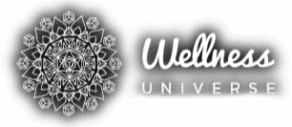Social awareness refers to the ability to understand and empathize with others, and to recognize and respond to social cues appropriately. It involves being able to identify and understand different perspectives, emotions, and cultural norms, as well as to recognize social injustices and issues.
Being socially aware means being mindful of one’s own behavior and how it affects others, as well as understanding and respecting the diversity of people and cultures. It also involves being able to communicate effectively with others and to collaborate with them towards common goals.
Why should we develop our social awareness?
Developing social awareness can have many benefits, both on an individual and societal level.
Here are some reasons why we should develop our social awareness:
- Improved communication: Social awareness can help us communicate more effectively with others by allowing us to better understand their perspectives and needs. This can lead to stronger relationships and more productive conversations.
- Enhanced empathy: Being socially aware can help us develop empathy, which is the ability to understand and share the feelings of others. This can lead to greater compassion and a deeper understanding of others.
- Better conflict resolution: When we are socially aware, we are better equipped to navigate conflicts and disagreements. We can identify the root causes of issues and work towards finding solutions that are fair and inclusive.
- More inclusive communities: By developing social awareness, we can become more aware of the diversity of people and cultures around us. This can lead to a more inclusive and welcoming community, where everyone feels valued and respected.
- Increased social impact: Social awareness can inspire us to take action on important social issues, such as inequality and injustice. By working towards positive change, we can make a real difference in our communities and beyond.
Overall, developing social awareness can help us become more compassionate, empathetic, and effective members of society.
Here are five ways to develop social awareness
- Practice active listening: One of the key components of social awareness is being able to listen actively to others. This means paying attention to what they are saying and asking questions to clarify their meaning. Practice active listening by putting away distractions (such as your phone), maintaining eye contact, and reflecting back what the other person has said to you.
- Seek out diverse perspectives: To develop social awareness, it’s important to expose yourself to different cultures, viewpoints, and experiences. This can be done through reading books, watching documentaries, attending cultural events, or simply having conversations with people who have different backgrounds than your own.
- Develop empathy: Empathy is the ability to understand and share the feelings of others. To develop empathy, try putting yourself in someone else’s shoes and imagining how they might feel in a given situation. Practice expressing empathy by acknowledging others’ feelings and validating their experiences.
- Observe and reflect on social dynamics: Social awareness involves being able to recognize and respond to social cues appropriately. Observe how people interact with one another in different settings and reflect on what you notice. Ask yourself questions like, “What are the power dynamics at play here?” or “How are people expressing their emotions in this situation?”
- Take action on social issues: Social awareness isn’t just about understanding social dynamics; it’s also about working towards positive change. Identify social issues that are important to you and take action, whether it’s through volunteering, donating to organizations, or advocating for change in your community or workplace. By taking action, you can help create a more just and equitable society.
Is the struggle with Social Awareness real?
There is no one specific type of person who struggles with social awareness, as it can be challenging for anyone. However, here are some factors that may contribute to difficulty with social awareness:
- Autism spectrum disorder: People with autism spectrum disorder may struggle with social awareness due to difficulty with social communication and understanding nonverbal cues.
- Attention deficit hyperactivity disorder (ADHD): People with ADHD may struggle with social awareness due to impulsivity and difficulty with focusing on social cues.
- Narcissistic personality disorder: People with narcissistic personality disorder may struggle with social awareness due to an excessive focus on their own needs and desires, rather than those of others.
- Anxiety or social anxiety disorder: People with anxiety or social anxiety disorder may struggle with social awareness due to excessive worry or self-consciousness about social interactions.
- Lack of exposure to diverse experiences: People who have had limited exposure to diverse experiences and cultures may struggle with social awareness due to a lack of understanding and empathy for those who are different from themselves.
It’s important to note that social awareness is a skill that can be developed with practice and effort, regardless of any individual differences or challenges.
How can we overcome social awareness struggles?
Here five strategies to overcome struggles with social awareness:
- Seek out feedback: Ask trusted friends, family members, or coworkers for feedback on your social interactions. Ask them to point out areas where you may be struggling, such as missing social cues or failing to pick up on others’ emotions.
- Practice mindfulness: Mindfulness can help you become more aware of your thoughts, emotions, and behaviors in social situations. Practice mindfulness techniques such as deep breathing, meditation, or body scanning to help you stay present and focused in social situations.
- Read social cues: Pay attention to nonverbal cues such as body language, tone of voice, and facial expressions to better understand what others are feeling and how they are reacting to you.
- Take social skills training: Social skills training can help you develop specific social skills such as active listening, assertiveness, and conflict resolution. You can find social skills training programs online or through a therapist.
- Seek therapy or counseling: If you are struggling with social awareness due to underlying mental health issues such as anxiety or depression, seeking therapy or counseling can help you address these issues and improve your social skills.
Remember, social awareness is a skill that can be developed with practice and effort. By being open to feedback, seeking out new experiences, and practicing social skills, you can overcome your struggles with social awareness and improve your social interactions.
All information, content, and material are for informational purposes only and are not intended to serve as a substitute for the consultation, diagnosis, and/or medical treatment of a qualified physician or healthcare provider. The information supplied through or on this page, or by any representative or agent of The Wellness Universe, is for informational purposes only and does not constitute medical, legal, or other professional advice. Health-related information provided through this website is not a substitute for medical advice and should not be used to diagnose or treat health problems or to prescribe any medical devices or other remedies. The Wellness Universe reserves the right to remove, edit, move, or close any content item for any reason, including, but not limited to, comments that are in violation of the laws and regulations formed pursuant to the Federal Food, Drug, and Cosmetic Act. None of the posts and articles on The Wellness Universe page may be reprinted without express written permission.
Relax, unwind, and heal with sound in Food for Your Soul. The Wellness Universe invites you to join Sharon Carne, Director of Training and Program Development at the Sound Wellness Institute for this immersive monthly experience.
Catch the recorded session(s) and be sure to join the next LIVE class!
Register today:

see how our self-care books are helping thousands of people around the world. Digital and paperback books are available now.
Connect to the people that help you live your best life: The Wellness Universe
The Wellness Universe is your resource for health, wellness, well-being, and transformation. We serve and support professionals who make the world a better place and individuals and groups who seek their best life.
A woman owned company; having the vision in 2013, Anna Pereira launched the first directory in 2015 bringing together a community of members making the world a better place to be found by those seeking their best life. The Wellness Universe has grown since then to be a one-stop shop for total wellness support! We are a vetted community, online directory, book publisher, resource center, event producer, content platform, and so much more, supporting whole-health and well-being on a global scale.
The Wellness Universe is a home that connects industry professionals in the health, wellness, and well-being fields to seekers of total well-being. WU provides our WU World-Changer members with peer support, Wellness Universe produced events (live and online), projects, visibility, business mentoring, and community. Through The Wellness Universe our WU World-Changer members serve WU Friends, seekers of health, wellness and transformation, with coaching, workshops, content and more.
The Wellness Universe provides individuals and groups seeking their best lives with access to our members, wellness content, educational resources, and guidance in all areas of wellness to transform visions of how they want to live life into the life they experience.
Through the directory, WU Featured Blog, SoulTreat wellness retreat, Self-Care Books, group well-being programs, and online learning center, The Lounge, The Wellness Universe provides many avenues to support whole health, mind, body, spirit and planet.
Join us today! Wellness Professional or Seeker of Your Best Life




